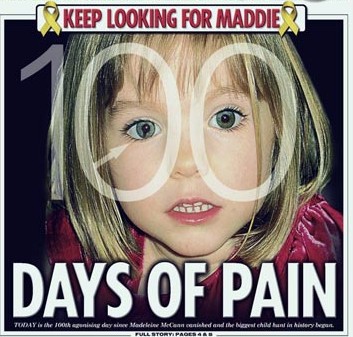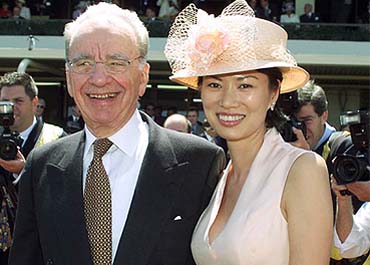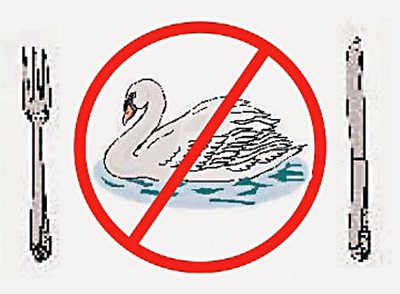The grief industry.
 In today's Guardian, Ian Jack recalls the end of summer 10 years ago:
In today's Guardian, Ian Jack recalls the end of summer 10 years ago:Jack doesn't mention whether some of those who questioned the mass-mourning which occurred then came under the same opprobrium which poured down upon the head of Professor Anthony O'Hear when the Social Affairs Unit published a book which contained an essay of his on the public reaction to the death of Diana, but it's probably safe to assume that they were replied to voluminously in the press.
O'Hear's essay, which also considered the sentimentality and general mawkishness exhibited at the time, was in fact far less of an aggressive critique than that offered by Winkworth. As Francis Wheen noted at the time (reproduced in Hoo-Hahs and Passing Frenzies, pp 68-70) O'Hear only went so far as to suggest that the grieving had lacked a sense of proportion. Nevertheless, this didn't stop the Mirror from calling him a "rat-faced little loser" and Tony Blair describing him as an "old-fashioned snob." Even a Guardian editorial suggested that the Social Affairs Unit as a whole was a "slightly fogeyish bunch."
Even if the events of this week have suggested something of a backlash against the McCanns, you get the same sort of feeling reading today's press coverage of the 100th day since Madeleine has disappeared. After 3 months of an unending media campaign, it has come to precisely naught. The only thing we still know for certain is that Madeleine, on the evening of May the 3rd, disappeared from the McCanns' apartment of the Mark Warner Ocean Club complex in the Portuguese resort of Praia da Luz. Everything else is still conjecture.
Not that this has stopped the press here at home pointing the finger variously at paedophiles and then the only declared suspect, Robert Murat, with gradually decreasing credibility. The Portuguese press, for its own part, has spent much of the last week speculating, along with police leaks reminiscent of those to the Sun in similar cases, that either the McCanns themselves or friends of theirs on holiday with them were now under suspicion. No one seems to have been able to strike the right balance; the British press and media being utterly craven, for which see this hagiographic account of the last 100 days in today's Sun, papers running front page splashes condemning a German reporter who dared to question whether the McCanns themselves might have been involved in some way, while the Portuguese press have been apparently happy to publish innuendo which appears to have absolutely no foundation. Even those sections of the media we usually depend upon to rise above the clamour and shrieks of the gutter press don't seem to have been immune to the image of a pretty missing white girl: the Grauniad running an interview with the McCanns which tells you absolutely nothing, and today's Telegraph, featuring another interview with the two.
It started with the equivalent of emotional pornography, coverage by turns both mawkish and pointless, urging the public to pray for "Maddie" and then to wear yellow, as if either could in any way possibly do anything to help the investigation, a display of fake empathy, or even possibly real, with hardened hacks going native in their refusal to even examine any alternative possibilities. The results of such coverage were displayed in comments on the Sun's own website: if they're to be believed, some seemed closer to a complete breakdown than the McCanns themselves have. After a couple of weeks, it mutated into something much more familiar: coverage for the sake of coverage, designed purely to try to boost sales, without offering any real support, while still indignant about anything negative directed towards the sainted couple. The Express, which was has probably featured Diana on the front page more since she died than before (see Daily Mail Watch), changed from the Diana Express into the Daily Maddie, the cynicism behind such blanket splashes being only too visible. Today's coverage has then come full circle: back to the Scum opening up "books of support" rather than books of condolence.
The main difference between the atmosphere of then and now is that in 1997 there was hardly no one who dared to raise their head above the parapet and suggest that this was all a little over the top. Private Eye's front cover jibe about the press coverage being revolting resulted in WHSmith temporarily removing it from their shelves. Major mass usage of the internet was also still in its infancy; while Usenet quickly started to buzz with conspiracy theories, debate and resistance to the rolling coverage was still mostly absent. This time round it's been very different: forums have been full of threads either critical of the McCanns or even suggesting that they have the most questions to answer. Whereas those nonplussed by Diana's untimely death and the reaction to it were underrepresented in the media then, with 44% apparently feeling alienated by the BBC's coverage of it according to their own research, the internet has now allowed those with a very different opinion to that dominating the mainstream to raise their own flags. It's not surprising that this change has left some of mainstream media both confused and angry by their failure to monopolise public opinion: the Sun describes the McCanns today as the victims of a "vicious smear campaign", something it ought to know about considering the number of ones that it itself has run in the past.
Responding back in April 1998 to O'Hear's essay, the Sun not only described grief as "a vital safety valve", it also told readers it was perfectly OK to "keep grieving". It shouldn't surprise you that the paper's leader now is full of similar sentiments, ending with:
As another day of torment passes, Sun readers will hope and pray for a new landmark. When Maddie is back with her loving parents.
It seems unlikely that the grief industry will be slowing down its production, online opposition or not, any time soon.
Labels: emotional pornography, grief industry, Madeleine McCann, media hysteria, voyeurism









